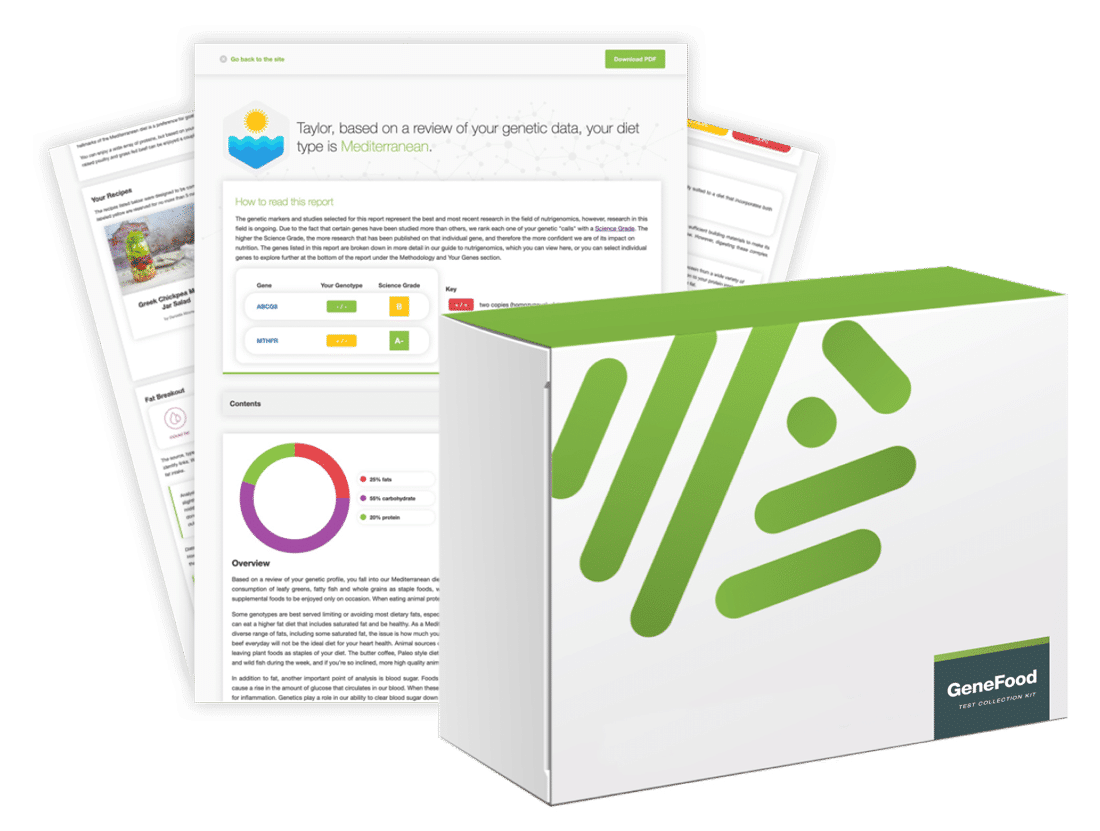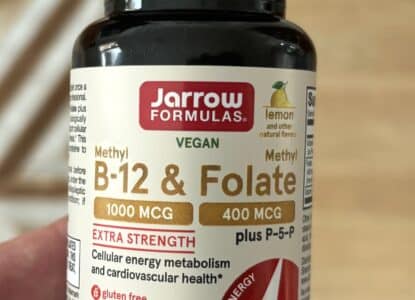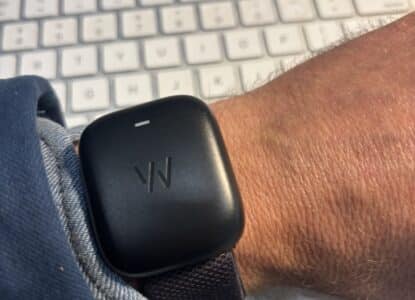Self Decode Review: Pros vs. Cons Based on Our Tests
Article at a Glance
- Self Decode has invested heavily in security and has achieved GDPR compliance which allows the company to operate in the European market.
- The library of traits and health reports offered by Self Decode is like having a personalized health encyclopedia at your fingertips.
- Lab testing and biomarker analysis has been added to the platform.
- SD’s use of ancestry in polygenic risk scoring is innovative.
- The sheer volume of technical information will overwhelm some users.

Contents
In this post, I continue my series reviewing peer companies in the genomics industry who have also reviewed Gene Food (as Self Decode did in 2022).
I’m privileged to know some of the leadership at Self Decode and have also had the chance to test the product, so this review is based on my first-hand experience with the team and reports.
The origin story of Self Decode is similar to Gene Food, a company I started to make sense of all the conflicting advice on diet and health protocols.
Self Decode current pricing:
- DNA Test Kit: $298 + $99 annual membership
- Raw Data Upload: $199 + $99 annual membership
- Holistic Lab Panel: $229 flat rate
Joe Cohen, Self Decode’s founder, has been public about his search for equilibrium after falling on the wrong side of several chronic health conditions. To this day, Joe is a well-respected member of the biohacking community and is widely regarded as having achieved “black belt” status in the space.
Self Decode started as the popular health blog, Self Hacked, which was well known in health circles, especially for the content it published on the mechanisms of action for a whole host of nutraceuticals.
I always marveled at the sheer volume of content Self Hacked published, and referenced it often when I was getting started in the world of health and wellness.

Get Started With Personalized Nutrition
Gene Food uses a proprietary algorithm to divide people into one of twenty diet types based on genetics. We score for cholesterol and sterol hyperabsorption, MTHFR status, histamine clearance, carbohydrate tolerance, and more. Where do you fit?
Why I trust the platform
GDPR is the European Union’s HIPAA equivalent. The GDPR regulations protect user data for citizens of the European Union.
The first thing to know about Self Decode is the company takes great care to secure user data. As we do at Gene Food, Self Decode uses a CLIA certified lab for sequencing, but has also gone the extra mile in establishing GDPR compliance, which allows the company to serve its B2B clients in the European market.
Although there is overlap with HIPAA, achieving GDPR compliance is no small feat and demonstrates a serious commitment to security best practices across the board.
You can view the GDPR checklist for US companies, here.
The Basics
The SD test kits are a simple cheek swab test, and the app can also process raw DNA files from third-party providers like 23andme.
Genomics is a complicated field, and I am sure some users want to know what they’re buying when they sign up for Self Decode.
By signing up for a service like Self Decode, you are buying their algorithm’s assessment of your risk for various diseases and conditions. This process is called polygenic risk scoring. We use it at Gene Food, as do many major hospitals, like the Cleveland Clinic.
An example of precision health, polygenic risk scores combine the different versions of many genes you have that are related to a specific disease.
CDC website
Self Decode’s scoring models identify risk for various traits, ranging from cardiovascular health to mental health and cognition. Although the company doesn’t test the entire genome, SD has developed an imputation process that allows the software to identify the presence of SNPs that aren’t included in its raw data set. The SD imputation model is particularly helpful for raw data customers because it can effectively expand the scope of the SNPs included in the base chip. Companies like GenomeLink have gotten into trouble with customers due to overselling the coverage in many raw data files. SD gets around this with technology that can infer the presence of SNP A from the presence of SNP B.
The SD raw data file contains over 700,000 SNPs and is compatible with several third party app, including ours.
To quote a story that appeared in GenomeWeb:
SelfDecode recently filed for a US patent on an algorithm that adjusts polygenic risk scores based on an individual’s ancestry.
Genomeweb story
As we are at Gene Food, the Self Decode team is hard at work improving their scoring algorithms to better detect predispositions for a host of different traits and health topics, including heart disease. With mountains of research in the field, cardiovascular disease is one of the strongest use cases for gauging cardiovascular risk, and the addition of ancestry data is an important development. We have been vocal about the need for more inclusive research across the board and especially for topics like MTHFR which see varying impact based on racial background.

Self Decode Health Topics
The team is passionate about their subject matter, and it shows. The SD library of health topics is broad and covers a huge range of topics, including:
- Mental Health
- Cognition
- Gut Health
- Nutrition
- Food Sensitivity
- Allergies
- Heart & Blood Vessels
- Thyroid
- Sleep
- Inflammation & autoimmune
- Immunity & infections
- Energy & Fatigue
- Weight & Body Fat
- Blood sugar control
- Pain & nerve health
Within each broad health category are nested more detailed health reports.
For example, under Immunity & infection, a user can see their genetic risk for contracting the flu virus, or their risk tier for getting shingles later in life. Each report cites and links to the research used to create the report.

The library of traits and health reports offered by Self Decode is like having a personalized health encyclopedia at your fingertips. The sheer volume of information offers a useful starting place to investigate any health condition or predisposition.
SD adds to the extensive trait reports, with Self Decode labs and lab analyzer, products that allow users to order lab tests through SD or analyze their current labs.
What could be better
The SD app is well done, and although some online reviews complain about the mandatory subscription pricing of $99 per year, which doesn’t include the cost of test kits, the number of features built into the app justifies the model. From what I can tell from reading online reviews, several users felt there should have been more notice given before the subscription auto-renews.
The main issue I have always had with the Self Decode product is that the sheer volume of information can be overwhelming. It will be hard for a layperson to use the Self Decode app without a health professional there to assist in interpreting results and assigning priority status to some reports over others.
Absence this type of assistance, viewing the Self Decode results for the first time will be like drinking from the fire hose. This experience could be a reflection of the leadership team’s decision to emphasize B2B as a priority moving forward.

Get Started With Personalized Nutrition
Gene Food uses a proprietary algorithm to divide people into one of twenty diet types based on genetics. We score for cholesterol and sterol hyperabsorption, MTHFR status, histamine clearance, carbohydrate tolerance, and more. Where do you fit?
Gene Food vs. Self Decode
First, Gene Food raw data files are compatible with the SD app, so users can order Gene Food, and then have full access to SD at a later time.
If your goal is to diagnose a mysterious health condition, or map complex biochemical processes with your physician, Self Decode is the more comprehensive solution.
If the goal is to craft a personalized approach to nutrition, Gene Food is the better choice. While SD does offer meal planning, the nutrition recommendations suffer from a lack of focus and tend to list so many ideas that none of them prove to be actionable.
Of course I am biased, but I think the 20 diet types we offer at Gene Food are more actionable and easier to implement than the SD nutrition reports.
Who should order Self Decode?
Self Decode’s biohacking roots are on full display in the product. The app is perfect for anyone who wants to dive deep into their genetic predispositions to create a personalized approach to health.
The use of ancestry in polygenic risk scoring is innovative.
The sheer volume and technical nature of the information makes Self Decode best suited for B2B use cases, and for consumers working closely with a well trained physician.



